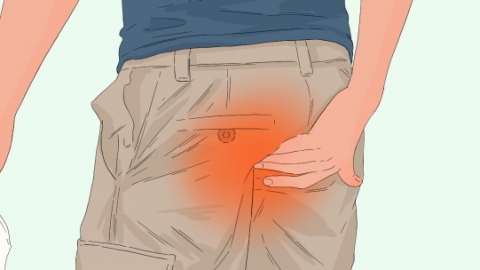What are the harms of hemorrhoids?
In general, if hemorrhoids are not promptly treated, they may lead to various complications including recurrent bleeding, local pain and discomfort, difficulty in defecation, perianal infections, and reduced quality of life. The specific risks are analyzed as follows:

1. Recurrent bleeding: During bowel movements, the hemorrhoidal tissue in patients with hemorrhoids is easily irritated or ruptured by hard stool, leading to rectal bleeding—typically seen as blood on the surface of the stool or dripping after defecation. Long-term, repeated bleeding can result in iron-deficiency anemia, causing symptoms such as dizziness, fatigue, and pale complexion, thereby affecting normal bodily functions.
2. Local pain and discomfort: Thrombosis or inflammation of external hemorrhoids can cause significant pain. If internal hemorrhoids prolapse and cannot be pushed back, they may become incarcerated, resulting in severe pain. This pain often worsens during bowel movements, walking, or prolonged sitting, causing persistent discomfort.
3. Difficulty in defecation: Pain and rectal bleeding caused by hemorrhoids may make patients fearful of defecation, prompting them to intentionally reduce bowel movements. This prolongs stool retention in the intestines, leading to excessive water absorption, harder and drier stools, and further exacerbating constipation and defecation difficulties.
4. Perianal infection: When hemorrhoids prolapse, the anal sphincter muscle may relax, allowing secretions to leak out and irritate the skin around the anus, causing itching and moisture. If the hemorrhoidal tissue becomes damaged and is not properly cleaned, bacteria may enter the wound, potentially leading to perianal abscesses or anal fistulas—serious infectious conditions that increase treatment complexity.
5. Reduced quality of life: Symptoms such as pain, bleeding, and itching from hemorrhoids can interfere with daily work and rest. Discomfort may intensify during prolonged sitting at work or at night while sleeping. Additionally, fear of pain or bleeding during bowel movements may limit social activities, diminishing overall well-being and life satisfaction.
Routine measures such as maintaining perianal hygiene, avoiding prolonged sitting or standing, consuming a diet rich in dietary fiber, and ensuring smooth bowel movements can help reduce the frequency and severity of hemorrhoid flare-ups.








